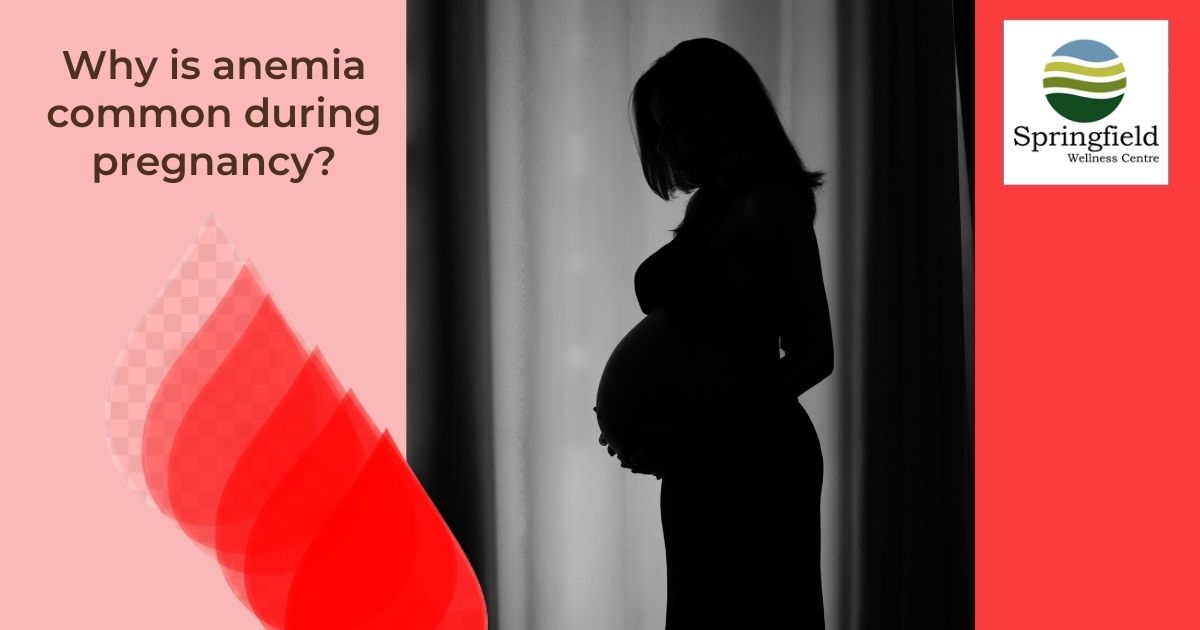Why is Anemia common during Pregnancy?
Pregnant women are at increased risk of acquiring iron deficiency anemia. We are aware that iron deficiency anemia is a condition where there is a dearth in the number of healthy RBCs and hence adequate oxygen is not carried to the body tissues. Why is the instance of anemia higher during pregnancy? Let us discuss the reasons, how to prevent and how to treat it if it occurs.
Reasons for iron deficiency anemia during pregnancy
During pregnancy, the volume of blood in your body increases. A corresponding increase in the amount of iron needed is also increased. The body of a pregnant woman uses iron to make more blood to supply oxygen to the baby inside the womb. If there is a lack of iron stores in the body of the pregnant woman or she does get enough iron in her food (nutrition) during pregnancy, she develops iron deficiency anemia during pregnancy.
Effect on the baby if there is iron-deficiency anemia during pregnancy
A very severe iron deficiency anemia during pregnancy can lead to premature birth (when a baby is born before 37 weeks it is termed premature). The child can be born with low low birth weight baby. It is also a leading cause of pregnant women developing postpartum depression after childbirth. Postpartum depression is a mix of physical, emotional, and behavioral changes that may happen in a few women after their childbirth history. In a few cases, infant death has also been reported due to anemia during pregnancy.
Risk factors for iron-deficiency anemia during pregnancy
Following are the risk factors for iron-deficiency anemia to develop during pregnancy.
- Getting pregnant immediately after a child is born
- A woman carrying twin or more babies in the womb
- Frequent vomiting during pregnancy
- Not having foods rich in iron content
- A family history of anemia or anemia is already present before the pregnancy.
What are the symptoms to look out for if the pregnant woman has iron-deficiency anemia?
Some of the signs and symptoms that need to be carefully looked out for if the pregnant woman has iron deficiency anemia are general fatigue and weakness, dizziness, pale or yellowish skin, headache, etc. Some of the symptoms like rapid heartbeat, low BP, facing difficulty concentrating are signs of the severity of anemia and this means the condition has to be treated urgently. Since some of the symptoms are common during pregnancy even if someone does not have anemia, it is always better to have blood tests that screen for anemia during pregnancy.
Preventing iron deficiency anemia during pregnancy
- Taking prenatal vitamins or supplements that contain iron. During pregnancy, a pregnant woman may need up to 27 milligrams of iron a day.
- Taking food that is a rich source of iron like beetroot, red meat, chicken, fish, green leafy vegetables, apples, etc.
- Taking enough vitamin-C-rich food like orange, lemon juice, or any citrus food. This is because vitamin C enhances the absorption of iron from plant foods.
Treating iron-deficiency anemia during pregnancy
Some people might develop anemia despite taking prenatal vitamins. In that case, it is recommended to test if anemia is present due to other reasons. In some cases, it may also be because the iron supplement given is either not adequate or is not getting absorbed by the body. If the cause is iron inadequacy, your doctor may recommend additional iron supplements. On the other hand, if the body is unable to absorb oral iron supplementation, you will be administered iron by intravenous methods (iron injections).

